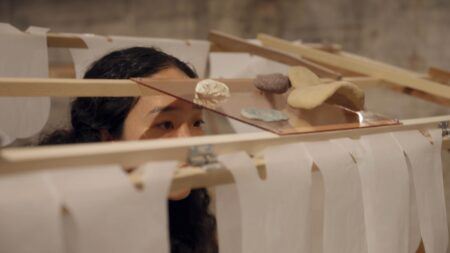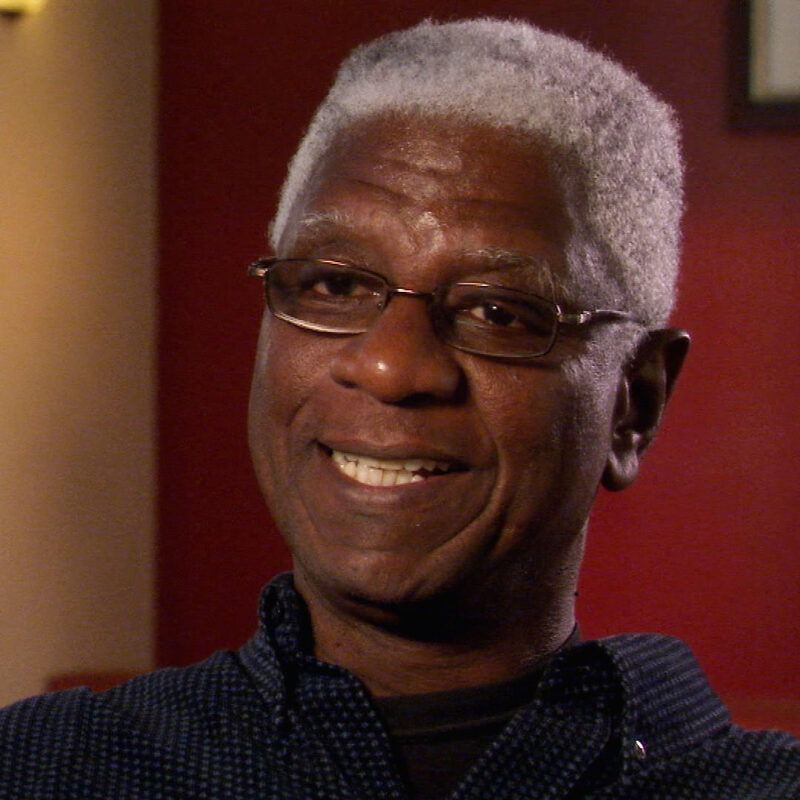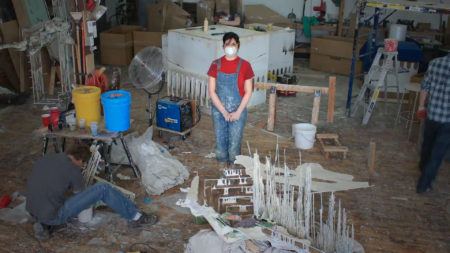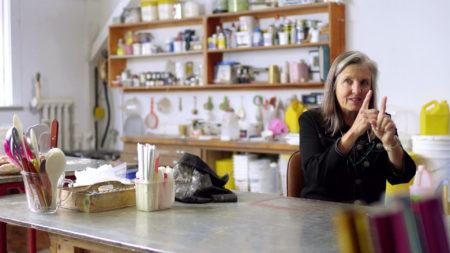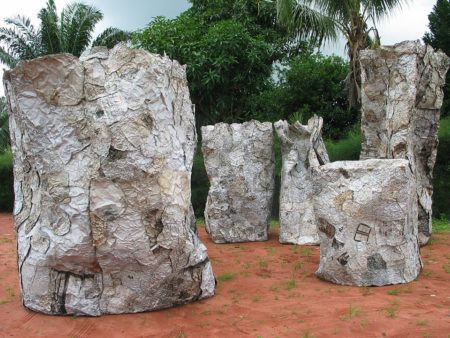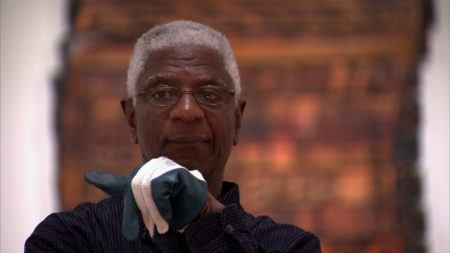Continue playing
(Time remaining: )
Play from beginning
Continue playing "{{ controller.videos[controller.getVideo(controller.currentVideo)].segmentParentTitle}}"
{{controller.videos[controller.getVideo(controller.currentVideo)].title}} has ended.
Studio ProcessEl Anatsui
Filmed at his Nsukka, Nigeria studio in 2011, artist El Anatsui describes the collaborative and contemplative setting where his artworks are made. Anatsui employs a team of assistants to construct “blocks” of joined bottle caps that are then shifted around on the studio’s floor. In looking at the patterns and textures created by this process, often through his digital photographs, Anatsui is able to form ideas for new work.
More information and creditsCredits
Producer: Ian Forster. Consulting Producer: Wesley Miller & Nick Ravich. Interview: Susan Sollins. Camera: Calistus Eziokwu. Sound: Ian Forster. Editor: Morgan Riles. Artwork Courtesy: El Anatsui. Special Thanks: Jack Shainman Gallery. Theme Music: Peter Foley.
Closed captionsAvailable in English, German, Romanian, Italian, Japanese, Korean, Chinese, Italian
Through the Art21 Translation Project, multilingual audiences from around the globe can contribute translations, making Art21 films more accessible worldwide. Translate this video now.
Interested in showing this film in an exhibition or public screening? To license this video please visit Licensing & Reproduction.
El Anatsui’s sculptures are mutable in form, conceived to be so free and flexible that they can be shaped in any way and altered in appearance for each installation. Working with wood, clay, metal, and—most recently—the discarded metal caps of liquor bottles, Anatsui breaks with sculpture’s traditional adherence to forms of fixed shape while visually referencing the history of abstraction in African and European art. The colorful and densely patterned fields of the works assembled from discarded liquor-bottle caps also trace a broader story of colonial and postcolonial economic and cultural exchange in Africa, told in the history of cast-off materials. The sculptures in wood and ceramics introduce ideas about the function of objects (their destruction, transformation, and regeneration) in everyday life, and the role of language in deciphering visual symbols.
“The studio is a sacred place that you come to do some bigger reflection and thinking.”
El Anatsui
In the Studio
Susan Rothenberg
Liz Magor
Artwork Survey: 2000s
El Anatsui
El Anatsui
El Anatsui
